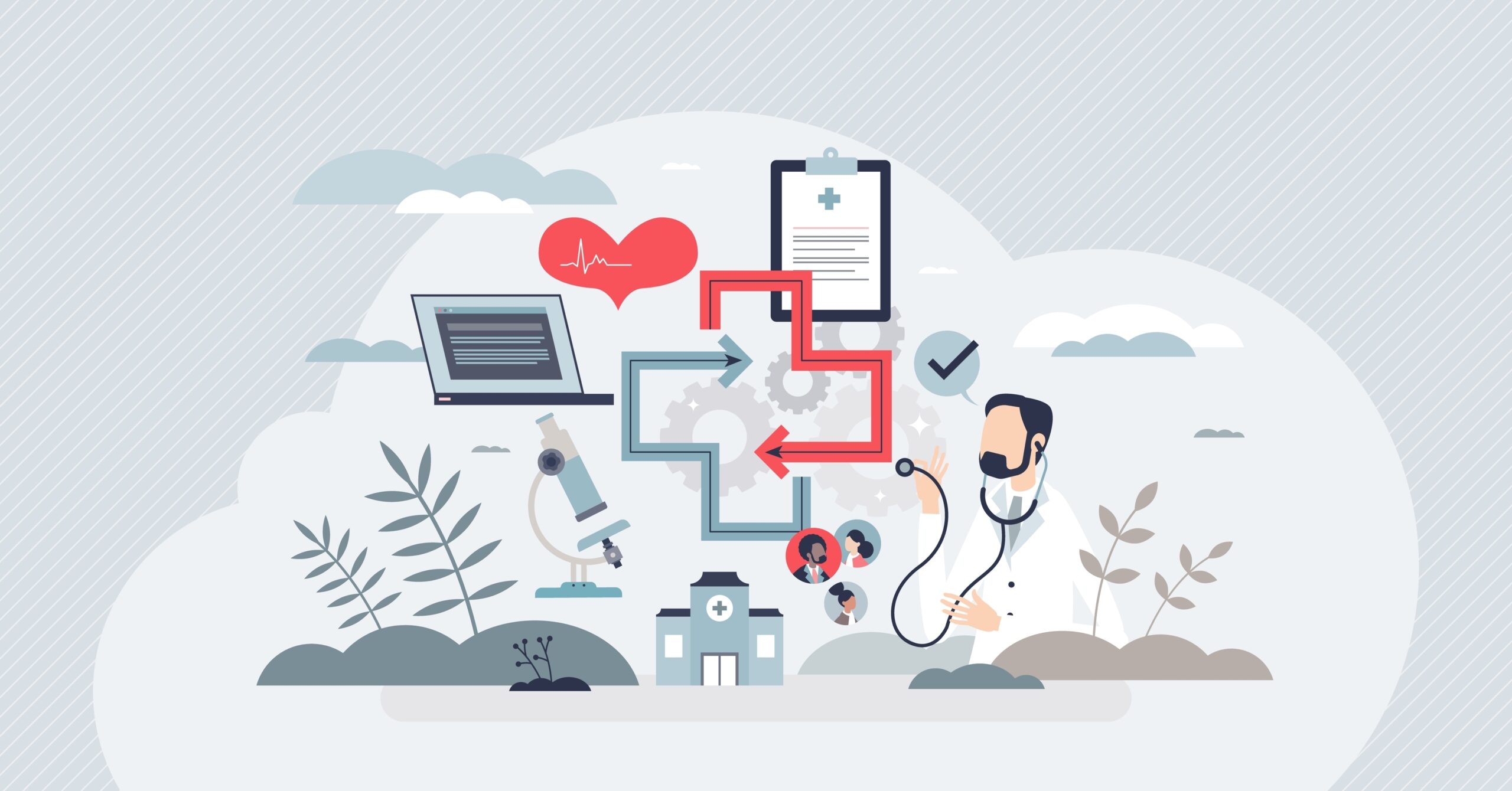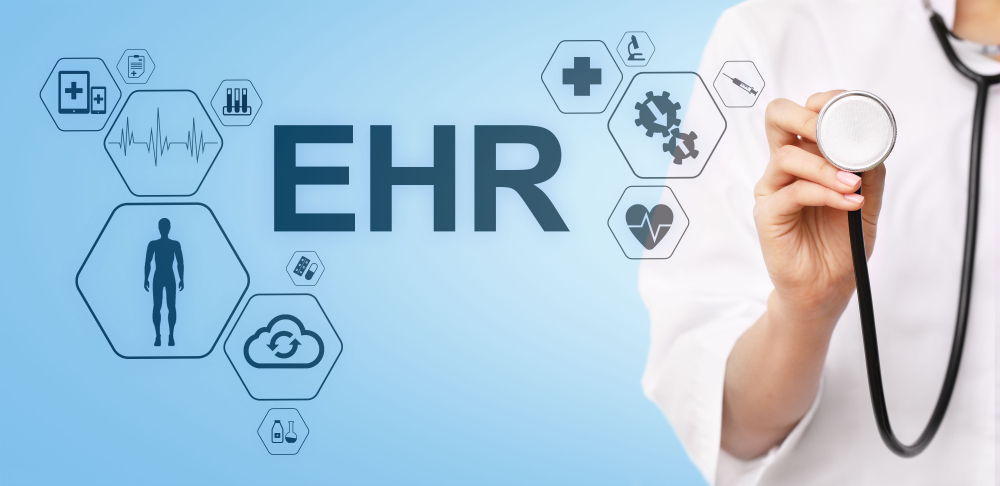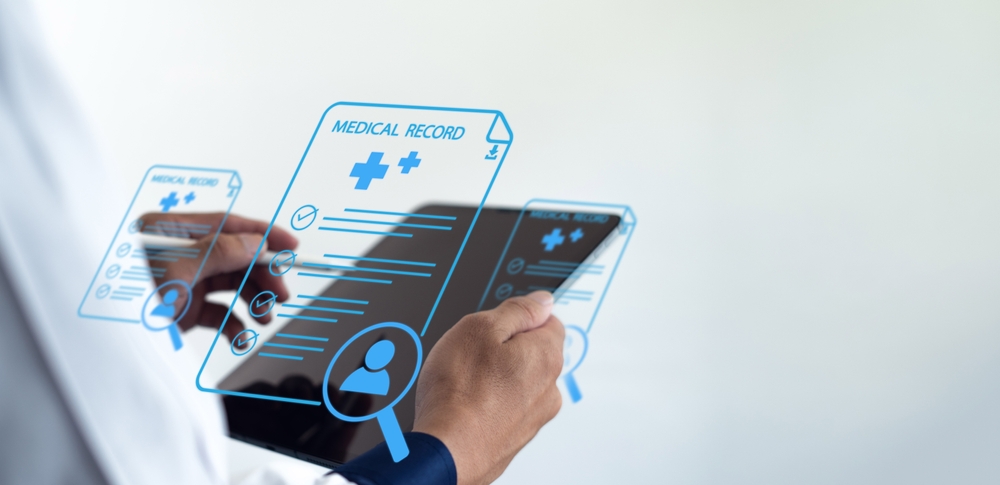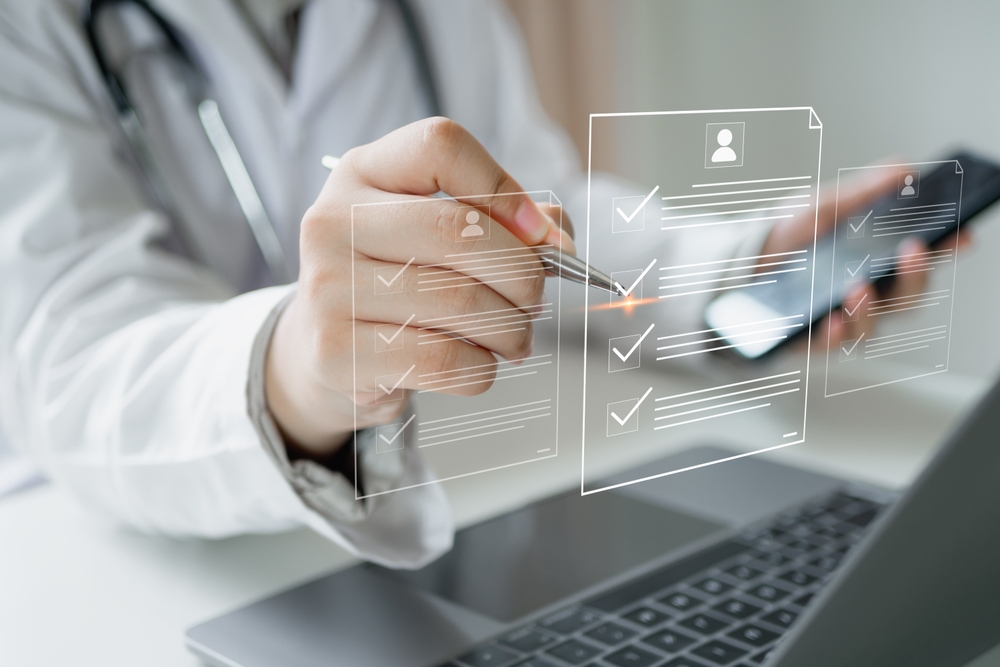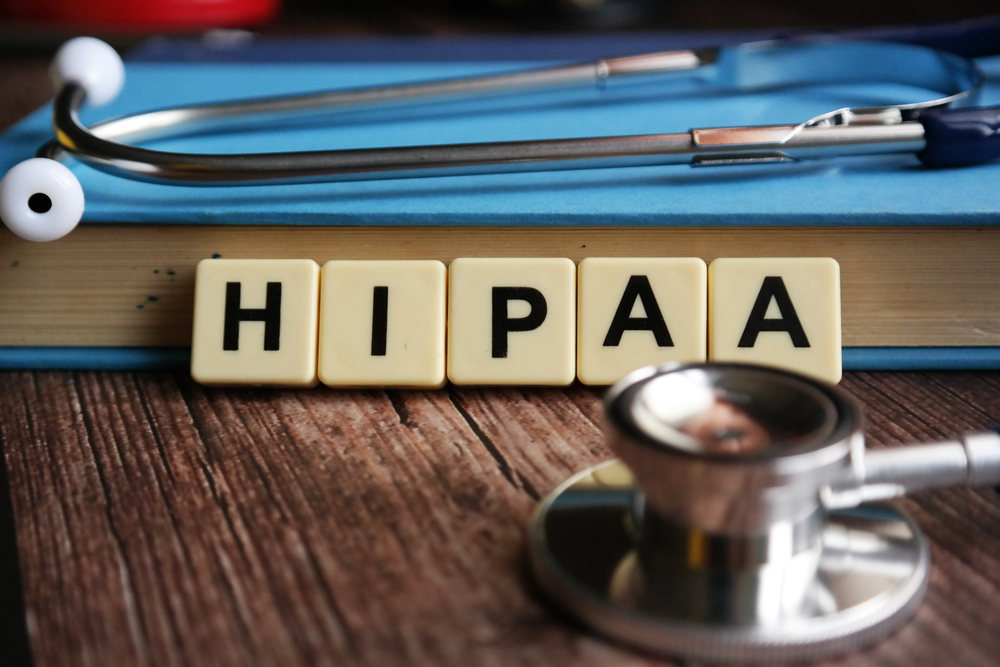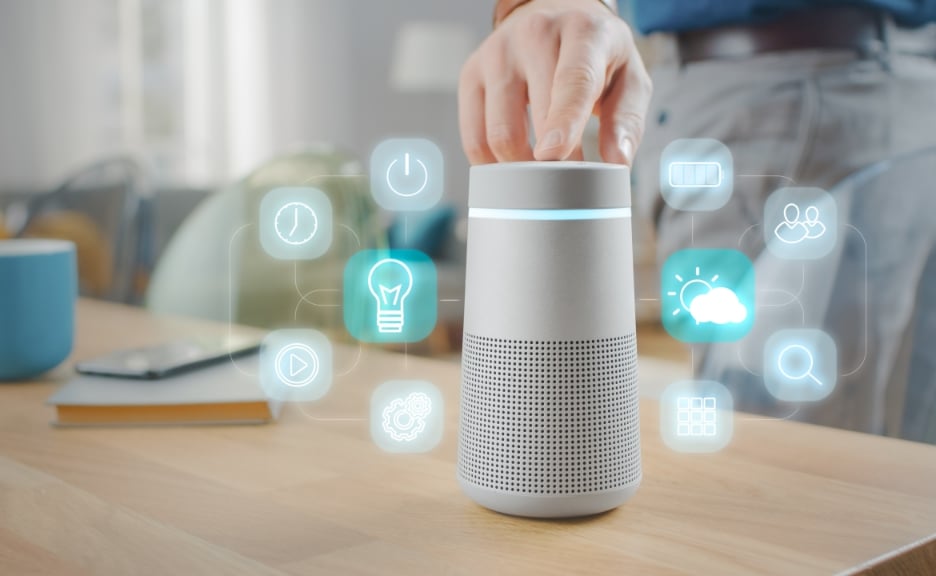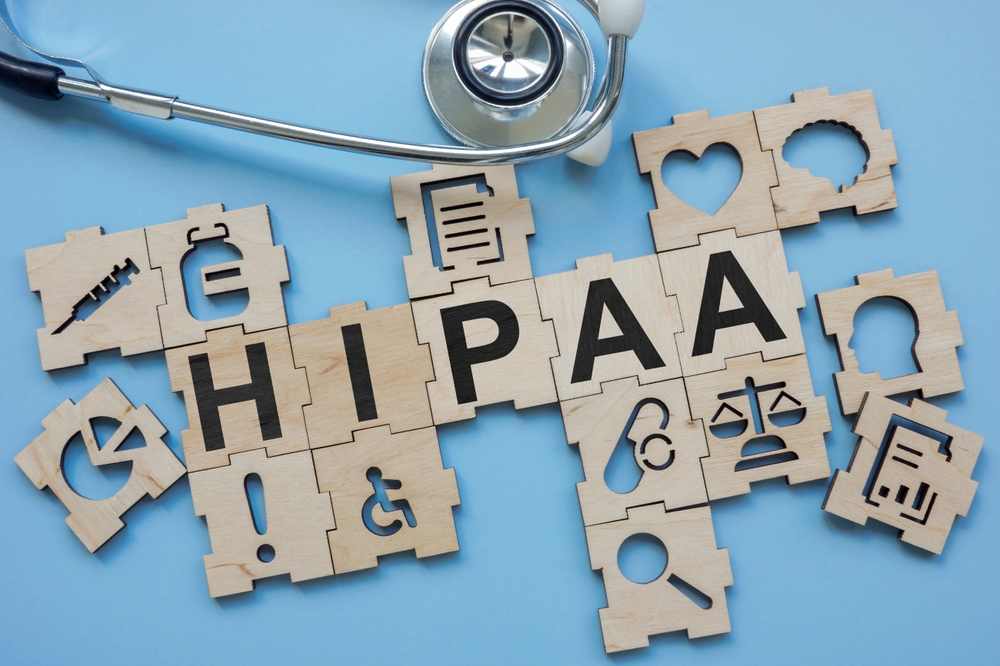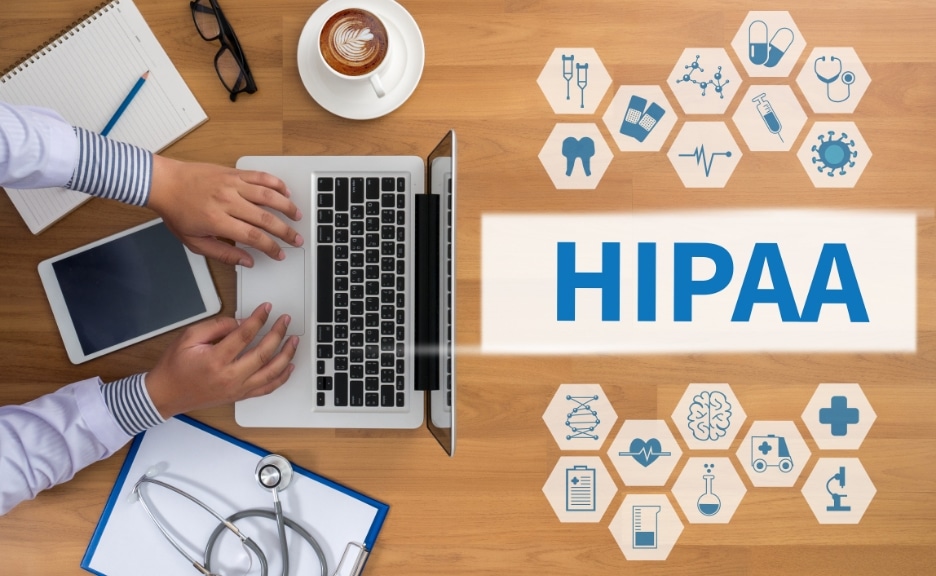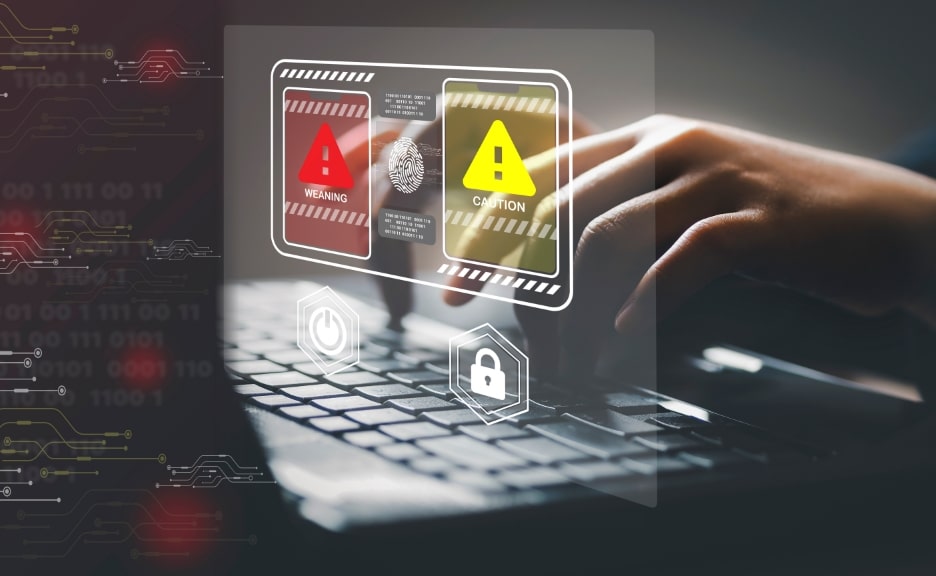Healthcare and Interoperability
HIPAA Compliant VoIP: How To Safeguard Patient Data with Ease
Compare All PlansStart Faxing Now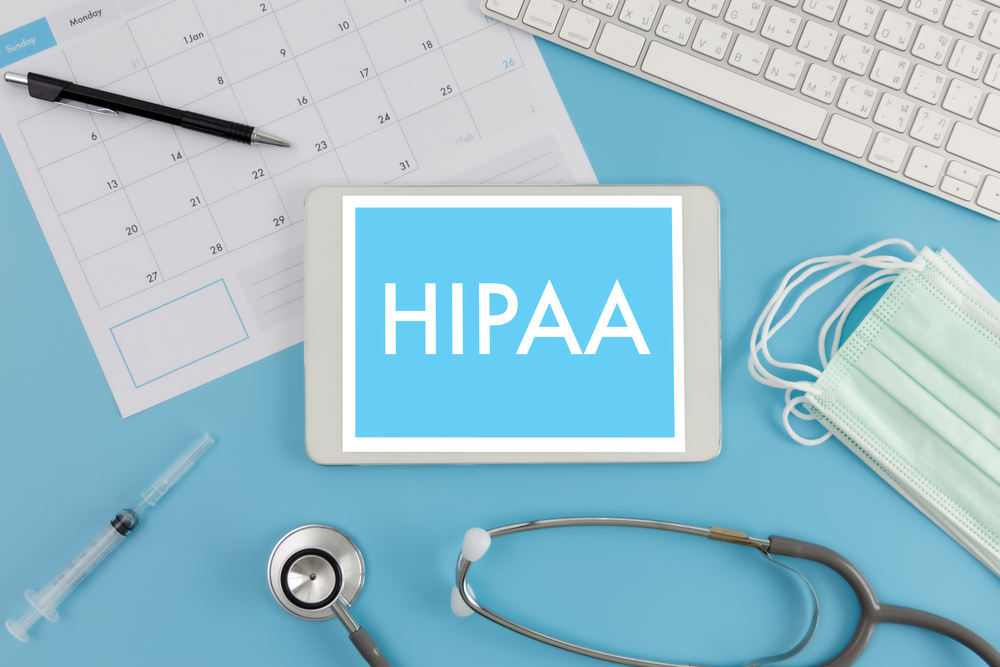
Secure communication is mission-critical for organizations across the healthcare industry. Healthcare organizations must comply with stringent regulatory requirements like the Health Insurance Portability and Accountability Act (HIPAA) to remove the risk of data loss and theft and limit the success of cybercrime.
Central to secure communication in healthcare are Voice over Internet Protocol (VoIP) systems, which are cost-efficient, offer rich flexibility and mobility features, and can sync with laptops, tablets, smartphones, other software applications, and traditional phone systems. Complying with regulations means deploying secure communication processes and tools like HIPAA-compliant VoIP services. VoIP HIPAA compliant companies are better equipped to securely store patient data while enjoying better-connected systems.
What is HIPAA Compliant VoIP
HIPAA was introduced into American law in August 1996 to secure the transfer of healthcare information and protect personally identifiable information (PII) against fraud and theft. The regulation seeks to prevent healthcare providers from disclosing sensitive or protected data with anyone other than their patients without their consent. Companies that breach HIPAA regulations face significant penalties and even the risk of prison time.
HIPAA ensures organizations protect the privacy and security of patients’ electronic and physical data. It also includes data transmitted via voice calls, which makes HIPAA compliance critical to healthcare providers using VoIP systems.
VoIP, also referred to as IP telephony, is a technology that delivers voice communication over IP networks, most commonly the Internet, rather than traditional phone lines. Some VoIP services only work on computers or specialized VoIP phones; others enable users to use a conventional telephone connected to a VoIP adapter. A VoIP system converts a user’s voice into a digital signal, allowing it to be transmitted across the Internet.
A HIPAA-compliant VoIP phone system meets the requirements set out by the regulation. This includes safeguarding patient data and complying with privacy and security rules around protecting PII. HIPAA compliance is critical across healthcare areas like:
Healthcare providers: All organizations that deliver healthcare services, including clinics, dentists, doctors’ surgeries and hospitals, must comply with HIPAA regulations.
Health plans: Any company that provides or pays for health coverage, such as health insurance firms and health maintenance organizations, is also bound by HIPAA rules.
Healthcare processors: HIPAA compliance is non-negotiable for any organization that processes healthcare data, such as claims processing. It’s also applicable to any organization with access to patient information, and organizations must provide secure communication channels for business associates, such as HIPAA-compliant VoIP.
Importance of HIPAA Compliance in VoIP Systems
Traditional phone lines are often vulnerable to data loss and snooping, which can risk the exposure of confidential health data and patients’ protected health information (PHI). Protecting patient privacy is, therefore, paramount to organizations across the healthcare industry. A HIPAA compliant phone system is critical to ensuring this, helping companies comply with stringent regulations that safeguard sensitive medical data.
A HIPAA compliant phone service for therapists and other medical professionals eliminates the risk of data loss by providing a secure tunnel for transmitting sensitive data. It helps healthcare providers by protecting data, safeguarding them from severe penalties and criminal action, and encouraging stronger patient relationships built around privacy and trust.
4 Benefits of Using HIPAA Compliant VoIP Solutions
HIPAA compliant VoIP solutions provide a wide range of benefits for healthcare organizations. The benefits include:
- Enhanced Patient Privacy: A HIPAA compliant VoIP service ensures that only authorized users can access sensitive medical data. This minimizes the risk of data breaches and establishes patient trust.
- Avoiding Fines: Failing to comply with the rules set out by the HIPAA regulation can result in severe fines and the risk of prison time. Implementing a HIPAA VoIP system ensures healthcare providers establish the required security standards across their communication processes. It also protects practices and healthcare professionals against the risk of financial penalties.
- Improved Communication: One of the biggest benefits of a HIPAA-compliant VoIP service is it unlocks advanced communication tools. A HIPAA VoIP system provides secure call capabilities alongside additional features like secure file sharing, instant messaging and video conferencing. These secure communication tools make it easy for users to comply with HIPAA guidelines, ensuring seamless collaboration between healthcare providers’ employees and across their disparate branches, clinics and offices.
- Loyalty and Reputation Boosts: Besides the risk of fines and prison sentences, failing HIPAA compliance also risks significant reputational damage. A HIPAA compliant VoIP solution demonstrates healthcare providers’ commitment to patient privacy, which in turn earns trust from existing users and can attract new patients to a practice. Trust is critical to success in the healthcare industry, so a secure VoIP HIPAA compliant service can set a provider apart from its competitors.
4 Critical HIPAA Requirements for Secure VoIP Communication
HIPAA-compliant VoIP services help healthcare providers comply with the regulation’s Privacy Rule and Security Rule. The Privacy Rule governs how healthcare providers can use and disclose PHI and emphasizes patient control over their health data. Healthcare providers must gain written authorization from patients before they use or disclose PHI.
The Security Rule ensures healthcare providers safeguard electronic PHI (ePHI). Under the rule, providers must ensure robust security measures are in place to protect ePHI from unauthorized access, destruction, disclosure, disruption, modification and use. The Security Rule also outlines four critical requirements under which providers must protect ePHI during VoIP communication.
- Data Encryption: Any conversation occurring through VoIP systems, such as chat messaging and calls, that contains PHI must be encrypted through protocols like Transport Layer Security (TLS) or Virtual Private Networks (VPNs). Encryption scrambles data so that any bad actor that intercepts data during transmission can’t make sense of it. As a result, it’s virtually impossible for unauthorized people to access sensitive data.
- Access Controls: Healthcare providers must ensure only authorized users can access sensitive data, such as PHI and VoIP systems. The Security Rule requires healthcare providers to utilize the principle of “need-to-know,” ensuring only employees responsible for patient care and treatment can access sensitive data. Additionally, multi-factor authentication provides an extra layer of security, requiring employees to prove their identity beyond simply using a password or code.
- Audit Trails: Healthcare providers must maintain a detailed log of all communication through their HIPAA compliant VoIP systems. These audit trails must include data like call duration, the content of messages, the people and organizations involved in the communication and timestamps of conversations. Logging this data is crucial to detailed record-keeping, enabling providers to reconstruct communication history and identify potential security issues.
- Data Backup and Disaster Recovery: Health organizations must implement contingency plans to guarantee the availability and integrity of ePHI. This process is critical to protecting sensitive data in the event of system failures, natural disasters, and other emergencies that could leave systems vulnerable to hacking. It also includes regular data backups and restoring communications systems as quickly as possible.
How to Choose a HIPAA Compliant VoIP System?
Healthcare communications typically involve the use of highly sensitive patient data. So using a reliable, robust and secure HIPAA compliant VoIP system is critical to protecting this information. Leading HIPAA-compliant VoIP providers offer solutions explicitly designed to meet the needs of healthcare providers. It’s therefore vital to research the market and identify providers that offer the following:
Business Associate Agreement: A Business Associate Agreement (BAA) provides a legally binding contract between healthcare organizations and their technology providers, such as VoIP providers. The BAA outlines each party’s responsibility around the privacy and security of PHI, so it’s vital to ensure the VoIP provider offers a BAA that aligns with your organization’s requirements.
Security Features: Considering the importance of protecting PHI and patient data, it’s critical only to consider VoIP providers that offer robust security features. More specifically, your chosen VoIP provider must also have security features tailored to HIPAA compliance.
Compliance Expertise: In addition to security features, it’s also vital to only work with VoIP providers with expertise and experience working with healthcare organizations. The VoIP provider must have deep knowledge of the best practices and latest regulations affecting healthcare firms and the tools and processes they require to guarantee HIPAA compliance.
Customer Support: Healthcare providers must select VoIP providers that offer reliable and responsive customer support. Look for providers with a dedicated support team that can solve any issues you have, answer any employee questions, and demonstrate knowledge of HIPAA compliance and their tool’s functionality regarding the regulation.
Flexibility and Scalability: Your current communications requirements will unlikely remain the same in the next 12 months and beyond. Therefore, you need a VoIP provider that’s flexible enough to align with your evolving needs and has the technological capabilities to scale as your business grows. It’s also important to consider how well the VoIP tool will integrate with your existing infrastructure and solutions and whether its implementation may cause any functionality and compliance problems.
Costs: Cost is a factor in any technology solution decision. However, cost shouldn’t be prioritized over privacy and security when implementing the best HIPAA compliant VoIP solution. The likelihood is that cheaper VoIP products are less likely to be HIPAA compliant, which could cost your business more in fines and reputational damage in the long run. So think carefully before prioritizing the cost of a HIPAA compliant VoIP.
Reputation: Selecting a HIPAA compliant phone system is critical to maintaining data security and protecting patient data. Therefore, your chosen HIPAA compliant VoIP provider’s reputation must be a key priority. Ensure the provider has a track history of working with reputable healthcare providers and avoid solutions marketed for general business use, which may not provide the required level of privacy security controls.
eFax Protect and HIPAA Compliant VoIP: A Perfect Pair for Protected Healthcare Communication
eFax Protect, our leading enterprise cloud fax solution, enables healthcare providers to seamlessly integrate their fax and VoIP communications to ensure HIPAA compliance. Aligning our online fax services with HIPAA compliant VoIP solutions enables healthcare organizations to protect all patient data and enhance the overall efficiency and security of their communications processes.
eFax is transforming fax capabilities by enhancing productivity and building data ecosystems that expand as healthcare organizations’ needs grow and evolve. The benefits of eFax include:
Enterprise-Level Security: eFax Protect’s online fax solutions rely on multiple layers of encryption, including 256-bit AES, TLS and SSL protocols, to secure fax communication when data is at rest and in transit. Additional security features like access control and authentication make eFax crucial for organizations in the highly regulated healthcare industry. This enterprise-grade security is why over half of Fortune 500 companies choose eFax’s online fax services.
Clear Audit Trails: eFax Protect easily integrates with third-party storage solutions and other technology, such as VoIP tools. Using eFax, healthcare organizations can guarantee their files are where they need them and when they need them and only authorized employees can access data.
Cost Control: eFax Protect’s flexible plans and feature-rich platform enable healthcare providers to enjoy efficient and seamless faxing without paying over the odds. eFax’s online faxing services eliminate the need for cumbersome, expensive fax machines, which must also be maintained and topped up with supplies of ink, paper and toner. Our service also eliminates hidden fees and unexpected charges, providing transparency to ensure budget-friendly experiences.
Flexibility: eFax Protect is designed to seamlessly integrate with multiple systems and applications, allowing seamless faxing on any platform. This provides healthcare organizations with the flexibility to enhance their communication processes. For example, many file-sharing providers limit the size of documents that users can send, but eFax provides a simple and efficient solution for sharing large files. eFax also enables users to send and receive faxes directly from their email inbox and on any device, from laptops to smartphones and tablets, helping businesses to streamline their communications.
Making the Right Choice for HIPAA Compliant VoIP
Healthcare providers must make the right choice when implementing new technology solutions, including selecting a HIPAA compliant VoIP. Working with a HIPAA compliant VoIP provider can be the difference between secure communications processes that protect patient information at all times and suffering costly and damaging data loss and cybercrime incidents.
It’s therefore crucial for healthcare providers to proactively evaluate HIPAA-compliant VoIP providers before committing to a product. Integrating a VoIP solution with eFax’s industry-leading online fax capabilities helps organizations safeguard their data when it’s in rest on various storage platforms and when being shared with trusted patients and colleagues.
FAQs Around HIPAA Compliant VoIP
Not all VoIP faxing complies with mandatory regulations like HIPAA. It’s crucial to work with HIPAA compliant online fax providers like eFax.
Healthcare organizations must diligently investigate VoIP faxing providers’ credentials to ensure they are VoIP HIPAA compliant. You can ensure your VoIP system is HIPAA compliant by implementing a solution that includes features like access controls, audit trail logs, data encryption, data backup and disaster recovery.
A VoIP system that doesn’t comply with HIPAA rules puts your healthcare company at risk of data loss and being hacked by cybercriminals. Losing sensitive patient health information can lead to healthcare providers being issued severe penalties, facing prison time and suffering irreparable reputation damage.
When choosing a HIPAA compliant phone system, look for VoIP providers that provide a detailed Business Associate Agreement and offer robust security features and compliance expertise. It’s also vital to work with companies that have reliable, responsive and knowledgeable customer support and the flexibility and scalability to meet your evolving requirements.
Yes, HIPAA-compliant VoIP systems can and should integrate with other healthcare technologies. Healthcare firms should actively look for a HIPAA-compliant VoIP service that works with their existing solutions and integrates seamlessly with their technology infrastructure stack.
